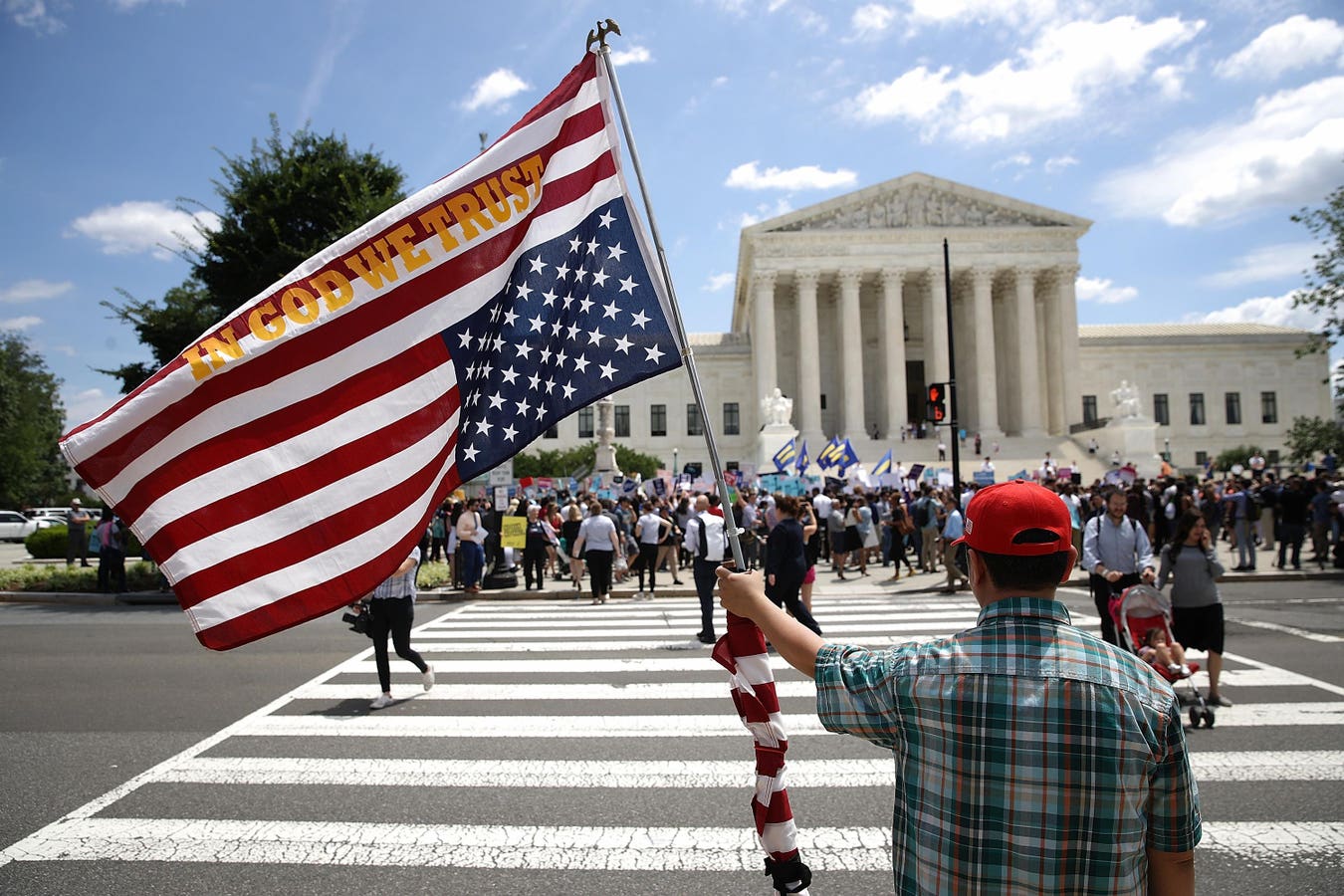WASHINGTON, DC – JUNE 26: A man bearing an upside down American flag watches as protesters gather … More
Several hospitals throughout the country are currently without some international medical graduates (IMG) because of President Trump’s travel band and visa restrictions.
According to the travel ban, citizens from 12 foreign countries are barred from entering the United States, and citizens from seven other countries will also face restrictions, making it difficult for many doctors who have completed medical education in foreign countries to train in America. In addition, on May 27th, the Trump administration restricted certain visas like J-1 visas from being issued which allow foreign medical students to work and train in the United States. The pause on interviews for J-1 visas has since been lifted, but some IMGs have reported to the Associated Press that U.S. embassies have been slow to open interview slots, and some have not opened any.
This comes at a critical time, since July 1st marked the first calendar day of medical residencies or training programs throughout the U.S. On July 1st, newly graduated medical students start medical training in their prospective fields such as internal medicine, emergency medicine and surgery; to name a few.
Although it remains unclear exactly how many IMGs have had their residency start date delayed due to the travel ban or visa restrictions, nearly 7,000 foreign born IMGs matched or filled into U.S. programs in 2025. This represents nearly 17% of the entire incoming workforce of medical residents in 2025, according to the National Resident Matching Program.
Without IMGs joining the medical workforce in America, the physician shortage will be exacerbated for the next decade. In fact, the U.S. will face a physician shortage of 86,000 doctors by 2036, according to the Association of American Medical Colleges. Less physicians means longer wait times in emergency rooms, delayed diagnoses and significant strain on safety-net hospitals. IMGs make up a critical component of the healthcare workforce, and without them, patient care is directly compromised.
IMGs also choose residencies and take jobs in places where U.S. medical trainees tend not to go, according to National Resident Matching Program President Donna Lamb, as reported by the Associated Press. As an example, IMGs make up 40% of residents in internal medicine, a primary care field with a focus on preventing chronic conditions like diabetes, cancer and heart disease.
In addition, IMGs play a critical role in serving underserved areas throughout America, providing primary care, cancer screening and emergency care to some of the U.S.’s most vulnerable population. According to a 2021 study published in Journal of Community Hospital Internal Medicine Perspectives, more than 64% of IMGs surveyed practiced in medically underserved areas and more than 45% practiced in rural areas. These foreign-grad doctors form the backbone of healthcare in rural America, and without them, the health of the 66 million Americans that are served by rural hospitals could be in jeopardy.
Finally, Trump’s travel ban could have a chilling effect on future foreign medical applicants to the U.S. Prospective physicians may be deterred from considering medical training programs in America given the challenges and hurdles present in securing visas. Not only will this amplify the physician shortage in the U.S., it will decrease the amount of culturally competent physicians that serve an increasingly diverse population in America.
President Trump’s travel ban, which has been enacted in the name of national security and public safety, could have serious consequences for public health and medical education. One thing remains certain- IMGs form a vital part of the healthcare workforce in the United States.









